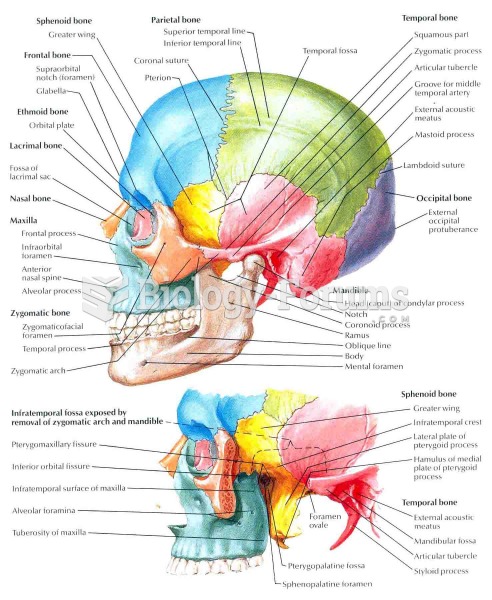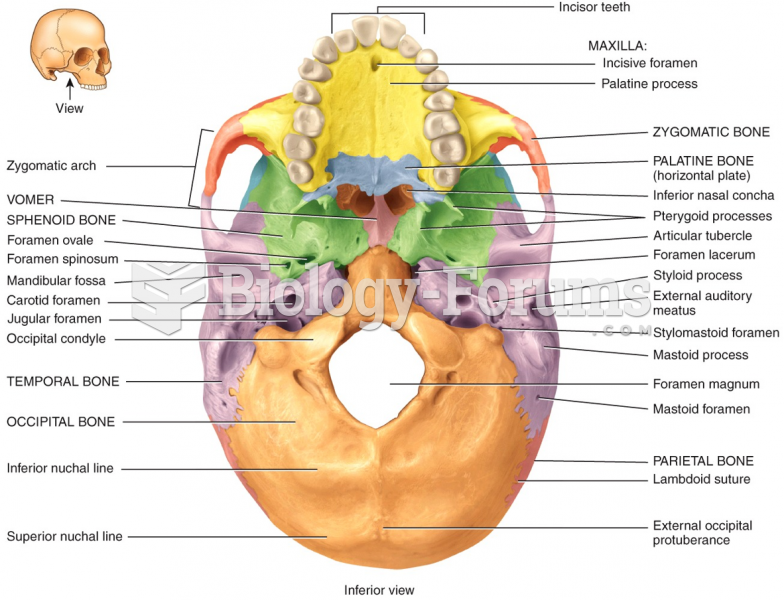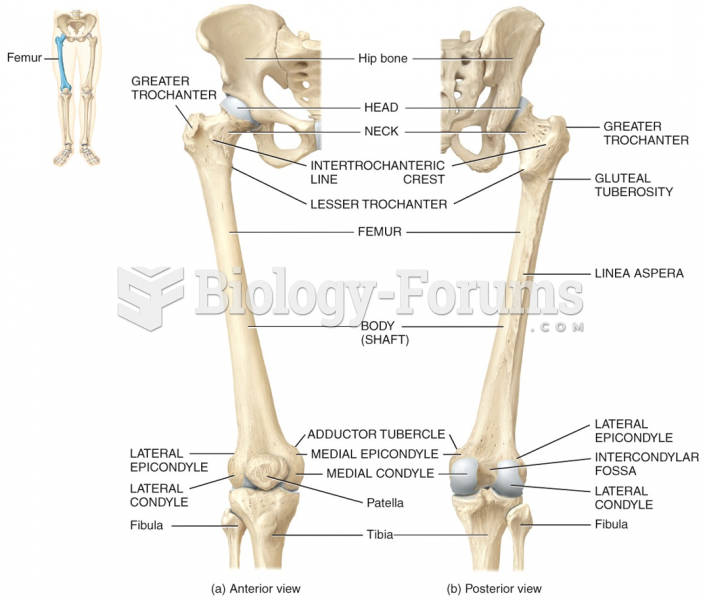This topic contains a solution. Click here to go to the answer
|
|
|
Did you know?
According to the National Institute of Environmental Health Sciences, lung disease is the third leading killer in the United States, responsible for one in seven deaths. It is the leading cause of death among infants under the age of one year.
Did you know?
More than 4.4billion prescriptions were dispensed within the United States in 2016.
Did you know?
The horizontal fraction bar was introduced by the Arabs.
Did you know?
The human body produces and destroys 15 million blood cells every second.
Did you know?
Computer programs are available that crosscheck a new drug's possible trade name with all other trade names currently available. These programs detect dangerous similarities between names and alert the manufacturer of the drug.







